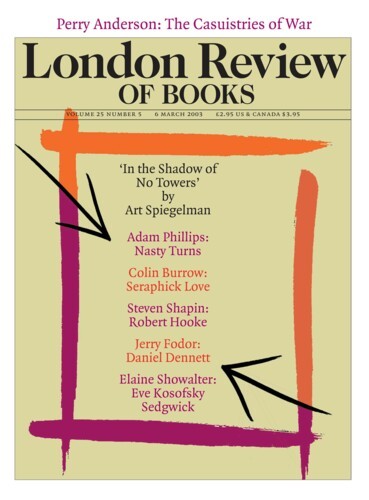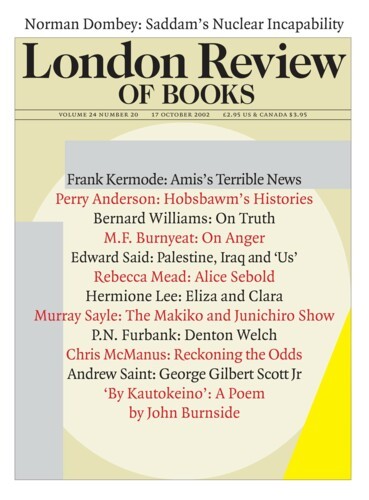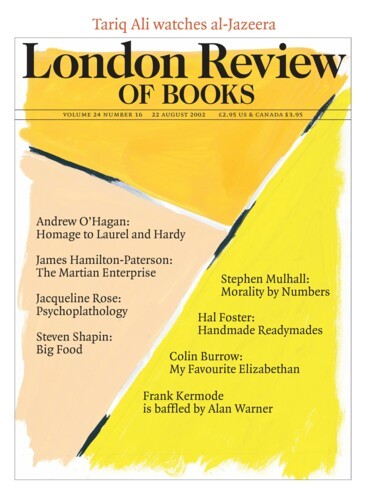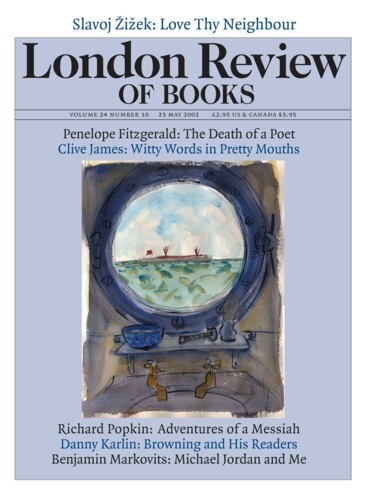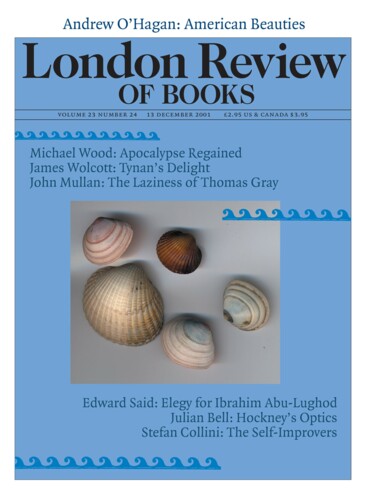Poem: ‘De Anima’
John Burnside, 6 March 2003
My son is learning insects – woodlouse bee a line of ants a lone fritillary. He finds them on a flagstone or a leaf and quizzes them the start of dialogue and so
commencement of the soul’s unfolding self-invention in a world that shifts and turns but really has no end
and surely what we mean by soul is something no anatomist could find: a total sum of movement and exchange how...
